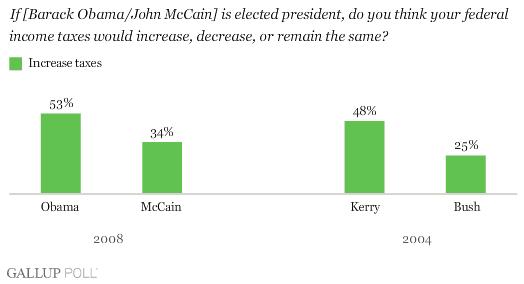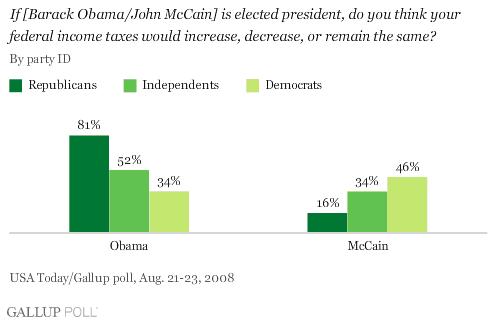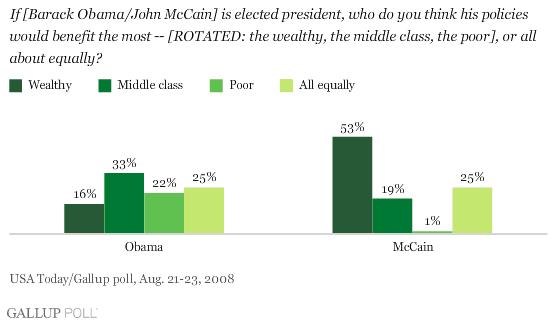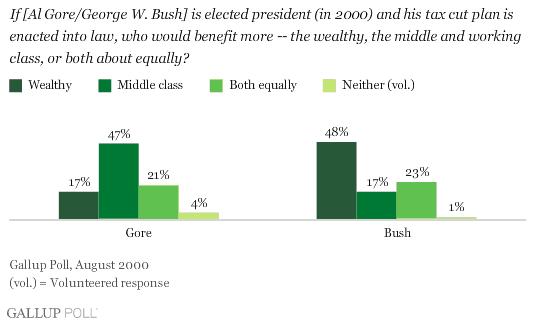Benutzer:Kraus Timo: Unterschied zwischen den Versionen
| Zeile 7: | Zeile 7: | ||
# Cars: Lamborghini,BMW,Audi,Koeniggsegg | # Cars: Lamborghini,BMW,Audi,Koeniggsegg | ||
# Music: Linkin Park,Limp Bizkit,Sum 41,Billy Talent,etc. | # Music: Linkin Park,Limp Bizkit,Sum 41,Billy Talent,etc. | ||
| − | |||
# Having Fun: with friends,on partys,etc. | # Having Fun: with friends,on partys,etc. | ||
# Multimedia: Watching Movies,Playing Games,etc. | # Multimedia: Watching Movies,Playing Games,etc. | ||
# Future: Federal Defense Force-Bundeswehr-Air Force | # Future: Federal Defense Force-Bundeswehr-Air Force | ||
| + | |||
| + | |||
| + | |||
| + | == Homework == | ||
| + | |||
| + | |||
| + | === Homework 1 === | ||
| + | |||
| + | HOMEWORK: Create a short entry in your own user page in this wiki. Use the following formats/forms <br /> | ||
| + | |||
| + | # bold and italic text<br /> | ||
| + | # green or red text <br /> | ||
| + | # a short numbered list of your thoughts on the election in Germany this weekend <br /> | ||
| + | # at least 4 headlines <br /> | ||
| + | Finally find at least 2 good English articles/webpages on what the Americans expected/hoped for from Obama and if (they think) he fulfills these hopes and expectations. <br /> | ||
| + | |||
| + | Create a numbered and annotated link collection like this for these two (or more) articles you have found. <br /> | ||
| + | |||
| + | |||
| + | |||
| + | ==== Execution Homework 1 ==== | ||
| + | |||
| + | |||
| + | |||
| + | '''Half of Americans Expect Obama to Raise Their Taxes'''<br /> | ||
| + | |||
| + | '''One-third expect a federal income tax increase in a McCain presidency by Dennis Jacobe, Chief Economist'''<br /> | ||
| + | |||
| + | PRINCETON, NJ -- Fifty-three percent of Americans expect their federal income taxes to increase if Barack Obama is elected president, while 34% think they would increase if John McCain gets the job -- both of which are higher than expectations were for their counterparts in the 2004 election.<br /> | ||
| + | |||
| + | [[Bild:federaltaxes1.jpg]] | ||
| + | |||
| + | '''Many Independents Think Both Obama and McCain Will Increase Taxes'''<br /> | ||
| + | |||
| + | Given the current economic environment, one might think that the last thing the presidential contenders would be thinking about -- let alone verbalizing -- would be their intention to raise federal income taxes. In fact, McCain has pledged to renew the tax cuts George W. Bush instituted, and Obama has said he would raise taxes on the wealthiest but would provide a tax cut to middle-class Americans. Therefore, it may be somewhat surprising that so many Americans think their federal taxes will go up, regardless of whether Obama or McCain is elected. And while the respective percentages are higher for this year's candidates than they were in 2004, the gap between the two contestants of 19 points is actually smaller than the 23-point gap that year.<br /> | ||
| + | |||
| + | Republicans are overwhelmingly convinced that Obama will increase their taxes, with 81% stating such an expectation, compared to 52% of independents and 34% of Democrats. In sharp contrast, only 16% of Republicans think their taxes will increase if McCain is elected president, compared to 34% of independents and 46% of Democrats. While party affiliation clearly plays a role in the way Democrats and Republicans view potential tax increases, a substantial percentage of independents think their federal taxes will increase no matter who wins.<br /> | ||
| + | |||
| + | [[Bild:federaltaxes2.jpg]] | ||
| + | |||
| + | '''Economic Groups Perceived to Benefit Most in an Obama or McCain Presidency'''<br /> | ||
| + | |||
| + | If Obama becomes president, 55% of Americans say they believe his policies will benefit the middle class (33%) or the poor (22%) the most, with 25% saying they'll benefit all groups equally and only 16% saying his policies would benefit the wealthy. In sharp contrast, if McCain is elected, 53% believe his policies will benefit the wealthy the most, with only 20% suggesting they will favor the middle class (19%) or the poor (1%), and 25% saying they will benefit all groups equally.<br /> | ||
| + | |||
| + | [[Bild:federaltaxes3.jpg]] | ||
| + | |||
| + | The public's view of these two candidates is little different from the perceptions of the Democratic and Republican candidates that existed in August 2000, when 47% of Americans felt Al Gore's policies would favor the middle class and 48% thought Bush's policies would favor the wealthy.<br /> | ||
| + | |||
| + | [[Bild:federaltaxes4.jpg]] | ||
| + | |||
| + | '''Commentary'''<br /> | ||
| + | |||
| + | Although Americans are more likely to say Obama, rather than McCain, will raise their taxes, they favor Obama as the candidate better able to handle taxes by 48% to 43%. In part, this may be because a majority of Americans see Obama's policies as benefiting the middle class and the poor the most, while a majority see McCain's policies as benefiting the wealthy. In turn, this could work against Mitt Romney, who has a Wall Street background, in the vice presidential stakes since McCain may want to avoid reinforcing this "favoring the wealthy" perception.<br /> | ||
| + | |||
| + | It is also possible that McCain's record of voting against the Bush tax cuts (although he now supports extending them) and his reputation as a "maverick" have some Americans believing -- contrary to what might be expected with a Republican in the White House -- he will raise federal income taxes if elected. In this regard, the fact that about one in three independents see a tax increase in a McCain presidency is something that might be of concern to the Republicans in the weeks ahead. In fact, how the candidates handle the tax issue in a time of recession may give voters significant insight into the fundamental economic policies of each candidate.<br /> | ||
| + | |||
| + | '''Survey Methods'''<br /> | ||
| + | |||
| + | Results are based on telephone interviews with 1,023 national adults, aged 18 and older and employed full- or part-time, conducted Aug. 21-23, 2008. For results based on the sample of employed adults, one can say with 95% confidence that the maximum margin of sampling error is ±3 percentage points.<br /> | ||
| + | |||
| + | Interviews are conducted with respondents on land-line telephones (for respondents with a land-line telephone) and cellular phones (for respondents who are cell-phone only).<br /> | ||
| + | |||
| + | In addition to sampling error, question wording and practical difficulties in conducting surveys can introduce error or bias into the findings of public opinion polls.<br /> | ||
| + | |||
| + | |||
| + | |||
| + | |||
| + | |||
| Zeile 73: | Zeile 140: | ||
| − | + | === Luftwaffe - German Air Force === | |
Version vom 28. September 2009, 13:18 Uhr
Inhaltsverzeichnis |
Timo Kraus
I`m interestet in different things:
- Sports: Football: Bayern München
- Card-Games: Poker,Wadeln,Canasta,Schnauz
- Cars: Lamborghini,BMW,Audi,Koeniggsegg
- Music: Linkin Park,Limp Bizkit,Sum 41,Billy Talent,etc.
- Having Fun: with friends,on partys,etc.
- Multimedia: Watching Movies,Playing Games,etc.
- Future: Federal Defense Force-Bundeswehr-Air Force
Homework
Homework 1
HOMEWORK: Create a short entry in your own user page in this wiki. Use the following formats/forms
- bold and italic text
- green or red text
- a short numbered list of your thoughts on the election in Germany this weekend
- at least 4 headlines
Finally find at least 2 good English articles/webpages on what the Americans expected/hoped for from Obama and if (they think) he fulfills these hopes and expectations.
Create a numbered and annotated link collection like this for these two (or more) articles you have found.
Execution Homework 1
Half of Americans Expect Obama to Raise Their Taxes
One-third expect a federal income tax increase in a McCain presidency by Dennis Jacobe, Chief Economist
PRINCETON, NJ -- Fifty-three percent of Americans expect their federal income taxes to increase if Barack Obama is elected president, while 34% think they would increase if John McCain gets the job -- both of which are higher than expectations were for their counterparts in the 2004 election.
Many Independents Think Both Obama and McCain Will Increase Taxes
Given the current economic environment, one might think that the last thing the presidential contenders would be thinking about -- let alone verbalizing -- would be their intention to raise federal income taxes. In fact, McCain has pledged to renew the tax cuts George W. Bush instituted, and Obama has said he would raise taxes on the wealthiest but would provide a tax cut to middle-class Americans. Therefore, it may be somewhat surprising that so many Americans think their federal taxes will go up, regardless of whether Obama or McCain is elected. And while the respective percentages are higher for this year's candidates than they were in 2004, the gap between the two contestants of 19 points is actually smaller than the 23-point gap that year.
Republicans are overwhelmingly convinced that Obama will increase their taxes, with 81% stating such an expectation, compared to 52% of independents and 34% of Democrats. In sharp contrast, only 16% of Republicans think their taxes will increase if McCain is elected president, compared to 34% of independents and 46% of Democrats. While party affiliation clearly plays a role in the way Democrats and Republicans view potential tax increases, a substantial percentage of independents think their federal taxes will increase no matter who wins.
Economic Groups Perceived to Benefit Most in an Obama or McCain Presidency
If Obama becomes president, 55% of Americans say they believe his policies will benefit the middle class (33%) or the poor (22%) the most, with 25% saying they'll benefit all groups equally and only 16% saying his policies would benefit the wealthy. In sharp contrast, if McCain is elected, 53% believe his policies will benefit the wealthy the most, with only 20% suggesting they will favor the middle class (19%) or the poor (1%), and 25% saying they will benefit all groups equally.
The public's view of these two candidates is little different from the perceptions of the Democratic and Republican candidates that existed in August 2000, when 47% of Americans felt Al Gore's policies would favor the middle class and 48% thought Bush's policies would favor the wealthy.
Commentary
Although Americans are more likely to say Obama, rather than McCain, will raise their taxes, they favor Obama as the candidate better able to handle taxes by 48% to 43%. In part, this may be because a majority of Americans see Obama's policies as benefiting the middle class and the poor the most, while a majority see McCain's policies as benefiting the wealthy. In turn, this could work against Mitt Romney, who has a Wall Street background, in the vice presidential stakes since McCain may want to avoid reinforcing this "favoring the wealthy" perception.
It is also possible that McCain's record of voting against the Bush tax cuts (although he now supports extending them) and his reputation as a "maverick" have some Americans believing -- contrary to what might be expected with a Republican in the White House -- he will raise federal income taxes if elected. In this regard, the fact that about one in three independents see a tax increase in a McCain presidency is something that might be of concern to the Republicans in the weeks ahead. In fact, how the candidates handle the tax issue in a time of recession may give voters significant insight into the fundamental economic policies of each candidate.
Survey Methods
Results are based on telephone interviews with 1,023 national adults, aged 18 and older and employed full- or part-time, conducted Aug. 21-23, 2008. For results based on the sample of employed adults, one can say with 95% confidence that the maximum margin of sampling error is ±3 percentage points.
Interviews are conducted with respondents on land-line telephones (for respondents with a land-line telephone) and cellular phones (for respondents who are cell-phone only).
In addition to sampling error, question wording and practical difficulties in conducting surveys can introduce error or bias into the findings of public opinion polls.
Bundeswehr
General information
The Bundeswehr (German for "Federal Defense Force"; comprises the unified armed forces of Germany and their civil administration and procurement authorities.
The States of Germany are not allowed to maintain armed forces of their own, since the Constitution determines that matters of defense fall into the sole responsibility of the Federal government.
Federal Defence Forces of Germany
Bundeswehr
Founded November 12, 1955
Current form October 2, 1990
Service branches Heer (Army)
Marine (Navy)
Luftwaffe (Air Force)
Streitkräftebasis (Joint Support Service)
Zentraler Sanitätsdienst (Central Medical Services)
Headquarters Bonn, Berlin, Potsdam
Leadership
Commander-in-Chief Minister Franz Josef Jung
Chancellor Angela Merkel (after "declaration of state of defense", i.e. in war time) Minister of Defense Franz Josef Jung
Chief of staff General Wolfgang Schneiderhan
Manpower
Military age 17
Conscription (Males) 9 months mandatory, up to 23 months voluntary
Available for military service 19,594,118 (2009 est.), age 17–49
Fit for military service 15,747,493 (2009 est.), age 17–49
Reaching military
age annually 445,048 (2009 est.)
Active personnel 253,430
Reserve personnel 355,000
Expenditures
Percent of GDP 1.5% (FY09)
Industry
Domestic suppliers EADS, Heckler & Koch, Rheinmetall, KMW, HDW
Foreign suppliers European Union, United States
Annual imports Volume of about $1 bln (2009 est.)
Annual exports Volume of about $9 bln (2009 est.)
The Bundeswehr is divided into a military part (armed forces or Streitkräfte) and a civil part with the armed forces administration (Wehrverwaltung), the federal bureau of procurement (Bundesamt für Wehrtechnik und Beschaffung) and the federal bureau for information management and information technology of the Bundeswehr (Bundesamt für Informationsmanagement und Informationstechnik der Bundeswehr, sometimes abbreviated as IT-AmtBw). The military part of the federal defense force consists of Army (Heer), Navy (Marine), Air Force (Luftwaffe), Joint Support Service (Streitkräftebasis), and Central Medical Services (Zentraler Sanitätsdienst) branches.
Luftwaffe - German Air Force
Luftwaffe is a generic German term for an air force. It is also the official name for two of the four historic German air forces, the Wehrmacht air arm founded in 1933 and disbanded in 1946; and the current Bundeswehr air arm founded in 1956.
Logo of the German Air Force
Active 1935-1945 (Wehrmacht)
1956-present (Bundeswehr)
Country Federal Republic of Germany
Role Air Defense Force
Size 60,300 (incl. 15,300 reserve forces) , 426 aircraft
Motto Team Luftwaffe
Colors Blue, Grey and White
Anniversaries 9 January 1956
Engagements
Spanish Civil War
World War II
Kosovo War
War in Afghanistan
Commanders
Current commander
Lieutenant General Klaus-Peter Stieglitz
Notable commanders
General Josef Kammhuber
General Johannes Steinhoff,
General Gerhard Back, 2004-2007 JFC Brunssum Commander
Insignia
Roundel
Aircraft flown
Attack Tornado
Electronic warfare Tornado
Fighter F-4 Phantom II, Eurofighter
Trainer T-38 Talon, G-120, T-37
Transport Challenger 600, A310, Cougar, C-160





